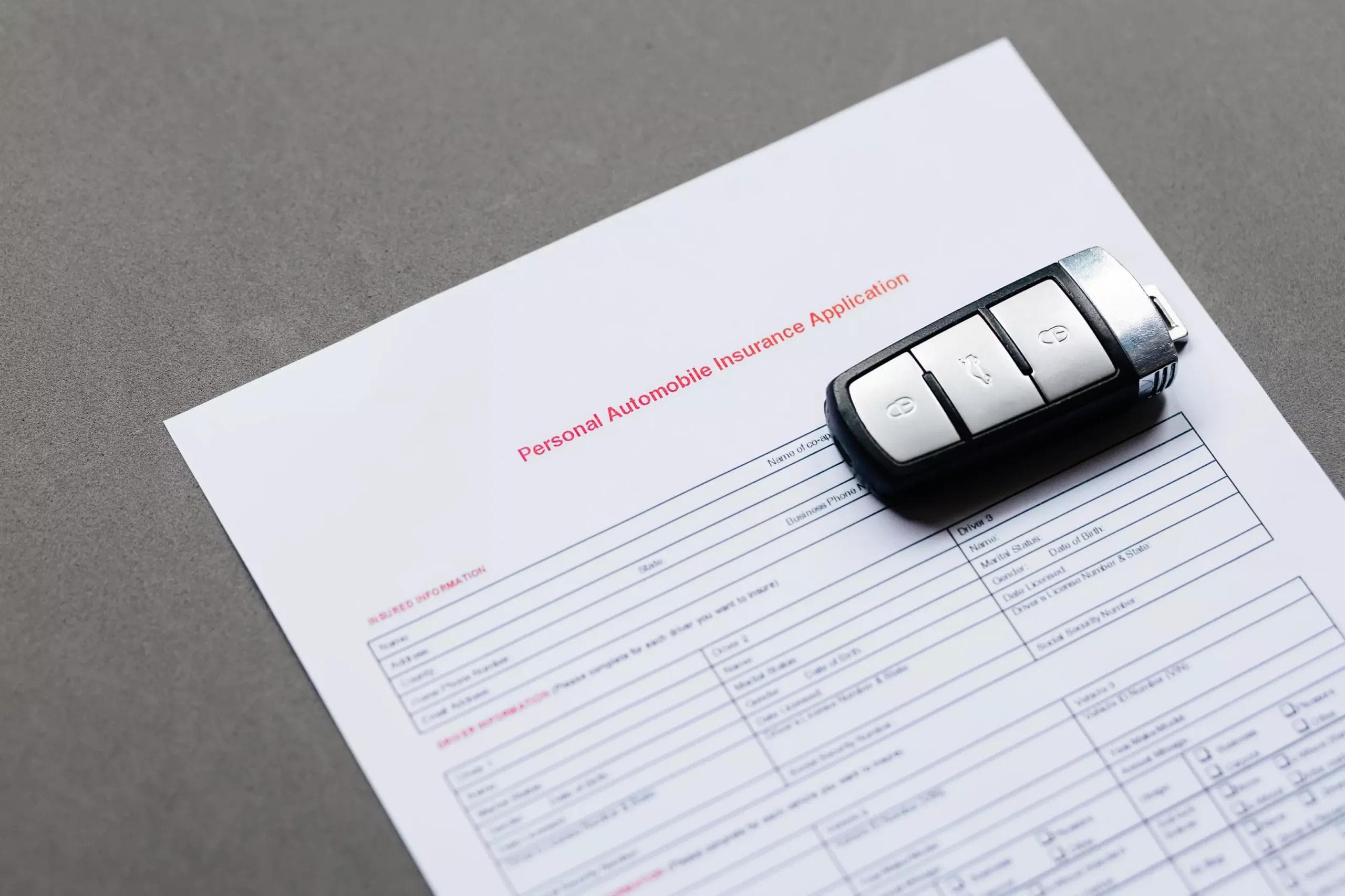
Bad Faith Insurance Tactics to Look Out for When Involved in a Car Accident Claim
Free ConsultationIn the aftermath of a car accident, dealing with insurance companies can be a daunting task. This blog aims to shed light on bad faith insurance practices where some insurers try to unjustly minimize their payouts. Understanding these tactics is key to safeguarding your rights and ensuring you receive the compensation owed to you.
At PARRIS Law Firm, we have seen these tactics firsthand, and we stand ready to support you in this fight. Our proficiency in personal injury law, particularly in California, arms us with the tools to navigate this complex landscape. Our goal is to provide you with valuable insights so that you can recognize and counteract such tactics, helping you secure the justice you deserve.
Understanding Bad Faith Insurance Claims
A bad faith insurance claim is when an insurance company fails to fulfill the obligations outlined in your policy or doesn’t abide by the laws governing insurance practices. It’s not a mere misstep or an honest mistake, but a deliberate and dishonest approach to deny, delay, or diminish your rightful claim.
In California, insurance companies have a legal duty of good faith and fair dealing, which means they must act in a reasonable and fair manner towards their policyholders and anyone injured by their policyholders. They must promptly investigate, process, and pay legitimate claims. When they deviate from this path, it’s called acting in bad faith.
When insurance companies fail to adhere to these obligations, they’re not just bending the rules—they’re breaking them. And when they break them, they are acting in bad faith. Recognizing these tactics is your first line of defense in ensuring that your rights are protected and that you receive the compensation you deserve after a car accident.
Common Bad Faith Tactics in Car Accident Claims
Navigating the insurance claim process following a car accident can be challenging, especially when you’re contending with bad faith tactics. Let’s discuss six common ploys and understand how they can negatively affect your claim.
- Unnecessary Delays: Time is of the essence in a car accident claim. However, some insurance companies may intentionally drag out the claim process. They might take an unreasonably long time to respond to your claim or to investigate the accident. This delay not only prolongs your financial uncertainty but also adds to your stress during recovery. It’s a bad faith tactic because it violates the insurer’s obligation to promptly process claims.
- Denying a Claim without Reason: If an insurer denies your claim without providing a clear and specific reason, it’s a red flag for bad faith. A denial can leave you struggling with medical bills and repair costs, creating financial hardship. Insurance companies are legally obliged to reasonably explain denying a claim, and they must provide this explanation in writing.
- Misrepresenting Policy Language or Laws: Some insurers may distort the terms of your policy or misinterpret laws to avoid paying your claim. This misinformation can lead to unjust claim denials or reduced payouts. It’s a bad faith tactic as it breaches the insurer’s duty to act honestly and fairly.
- Inadequate Investigation: A thorough and timely investigation is crucial to determine the validity of a claim. However, an insurer acting in bad faith might conduct a cursory or biased investigation to undervalue or deny your claim. They may also delay investigating so long that evidence goes missing. This tactic deprives you of fair compensation and contravenes the insurer’s obligation to perform a comprehensive investigation.
- Unreasonably Low Settlement Offers: If an insurer offers a settlement that doesn’t adequately cover your losses, it’s likely a bad faith tactic. Accepting such an offer can leave you out-of-pocket for medical expenses, lost wages, and other damages. Insurance companies have a duty to provide reasonable compensation for valid claims.
- Refusing to Defend a Lawsuit: If you’re sued over a car accident, your insurance company has a duty to defend you. Failing to do so can expose you to significant legal costs and potential liability. This refusal is a bad faith practice because it violates the insurer’s contractual obligations.
Each of these tactics can inflict financial strain and emotional distress, hindering your recovery process. They are considered bad faith practices because they violate the standards of fair dealing and good faith that insurers must uphold under California law.
How These Bad Faith Insurance Tactics Affect You
From your wallet to your mental health, to the overall recovery process, these unscrupulous practices can take a toll.
The Financial Hit: Car accidents come with a hefty price tag. Medical bills, vehicle repairs, and lost income due to time off work can swiftly accumulate into a mountain of debt. When an insurance company engages in bad faith tactics, the financial burden can intensify. Delayed payouts, denied claims, or paltry settlement offers can leave you shouldering these costs alone. The result? A financial strain that can destabilize your economic security.
Emotional Stress: Dealing with the aftermath of a car accident is already stressful. Add in a relentless battle with an insurance company, and the emotional toll can skyrocket. Unnecessary delays, convoluted policy misinterpretations, and baseless claim denials can lead to heightened feelings of anxiety, frustration, and helplessness. This added stress can exacerbate physical injuries and the overall healing process.
Impediment to Recovery: Speaking of healing, bad faith tactics can throw significant roadblocks in your recovery journey. Insufficient funds may delay necessary medical treatments or force you to opt for less effective but cheaper alternatives. This not only prolongs your recovery but also impacts your overall well-being and quality of life.
So why do insurance companies resort to these tactics? The answer is simple yet harsh—it’s about their bottom line. By minimizing payouts, they maximize profits. But don’t let this deter you. The insurance landscape may seem intimidating, but knowledge is your best ally.
How to Identify Bad Faith Insurance Tactics
Recognizing bad faith insurance tactics is crucial. Here are some telltale signs to watch out for:
- Unjustified Delays: If responses or claim processing are dragging on without reasonable cause, it’s time to raise an eyebrow.
- Claim Denials Lacking Explanation: A denial without justification is a red flag. You’re entitled to a clear reason for any denied claim.
- Policy or Law Misinterpretation: If your policy language seems twisted or laws appear misrepresented, be vigilant. It could be an attempt to evade claim payment.
- Incomplete Investigation: A hurried or biased investigation can lead to unjust claim denials or undervalued settlements.
- Lowball Settlement Offers: If the settlement proposed doesn’t align with your losses, it’s an issue. They’re trying to get off the hook for cheap.
- Refusal to Defend a Lawsuit: If you’re facing a lawsuit and your insurer won’t stand up for you, it’s a serious breach of duty.
- Ignoring Your Communications: If your calls, emails, or letters go unanswered, it’s not just rude, it’s possibly a sign of bad faith.
- Changing Your Claim Adjuster Repeatedly: If your adjuster keeps changing, causing delays and confusion, it could be a tactic to frustrate you into settling.
- Requesting Unnecessary Documentation: Asking for irrelevant paperwork could be a stalling strategy to delay your claim.
- Misquoting Your Policy: If the insurer is quoting policy terms that seem incorrect or misleading, they may try to underpay your claim.
- Making Threatening Statements: Any attempts to intimidate you into accepting lower settlements is not just unethical, it’s likely bad faith.
- Settlement Offers Without Reviewing All Medical Records: If an offer comes before all medical records have been reviewed, they may be rushing to close the claim.
What to Do If You’re a Victim of Bad Faith Insurance Tactics
If you find yourself caught in the crossfire of bad faith insurance tactics, don’t despair. Here’s a roadmap to navigate through this maze.
Step 1: Document Everything: Like footprints in the sand, every interaction with the insurance company leaves a trail. Keep track of all correspondences, record dates, times, and key points of discussions. This paper trail can be vital evidence if you need to prove bad faith.
Step 2: Understand Your Policy: Knowledge is power. Familiarize yourself with your policy terms, conditions, and exclusions. This understanding equips you to challenge any misinterpretation the insurer may throw your way.
Step 3: Consult a Personal Injury Lawyer: An experienced personal injury lawyer can be your compass in this tumultuous journey. They can review your case, advice on the best course of action, and represent your interests.
At PARRIS Law Firm, we’ve battled bad faith insurance tactics head-on and emerged victorious, securing millions in compensation for our clients. We understand the ins and outs of insurance law, and we know how to counteract these unscrupulous tactics effectively.
Taking Decisive Action
If you’re caught in the whirlwind of bad faith insurance tactics, take a deep breath. You’re not alone in this fight. PARRIS Law Firm is ready and willing to step into the ring for you. Our team of dedicated personal injury lawyers has the knowledge, experience, and tenacity to tackle these underhanded tactics head-on.
If you believe you’re a victim of bad faith insurance tactics, contact PARRIS Law Firm today. We’re here to guide you through this storm, one step at a time.




